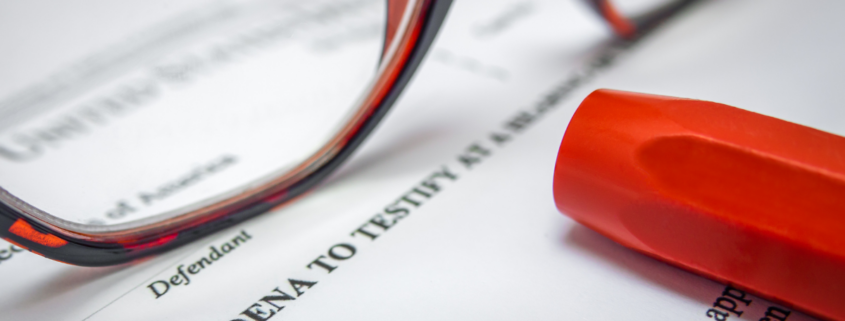What is Discovery in a Divorce Case?
Discovery is the process in which both parties exchange information, documents, and sworn testimony. It is a critical part of a divorce, especially if the parties have difficulty negotiating a settlement and the case appears headed for a trial.
Discovery produces the evidence that fuels the divorce process. Without facts, neither party can establish their case or negotiating positions. You cannot resolve a divorce based on opinions and emotions. You need facts, which discovery reveals.
When Can Discovery Be Used?
Pennsylvania Rules of Civil Procedure Rule 1930.5 covers discovery in domestic relations cases. It states discovery is:
- Not allowed in “simple” support, custody, Protection from Abuse, or Protection of Victims of Sexual Violence or Intimidation proceedings unless a judge authorizes it.
- Allowed without court approval in alimony, equitable distribution, counsel fees and expenses, and “complex” support proceedings.
Discovery can be expensive and time-consuming, so it is not appropriate in every case.
What Can a Party Seek in Discovery?
The information and documents sought must be relevant under Pennsylvania Rule Civil Procedure 4003.1:
- What is sought can concern any matter not privileged (it need not be disclosed under civil procedure rules or applicable laws) which is relevant to the divorce.
- It can relate to a claim or defense.
- It can cover the existence, description, nature, content, condition, who has custody of, and location of documents, books, or other tangible things.
- It can ask for the identity and location of those knowing any discoverable matter.
- What is sought need not be admissible at trial if the request appears intended to lead to the discovery of admissible evidence.
The discovery process should force both parties to “show their cards” so they understand all the relevant facts as well as the strengths and weaknesses of their case. After the parties make complete disclosures, cases where negotiations have not gone well often settle.
How Does Discovery Work?
Discovery methods include providing to the other party and responding to:
- Interrogatories: A set of questions.
- Production requests: A list of documents sought by a party. They can exist on paper electronically.
- Subpoena to produce things and/or documents: A formal request by one party to the other that is potentially enforceable by court order. They are usually used by the party seeking information or documents after the other party objects to what is sought and refuses to respond.
- Request for admission: One party asks the other to admit whether a series of statements is true or not.
The receiving party can object if they have a valid reason to refuse to respond to a request. (It is not relevant, confusing, or overly broad, for example). The party seeking discovery can amend the request to accommodate the objection, ask a judge to order a response, or decide to drop the issue. If there are no valid grounds to object, the party must respond.
What are Depositions?
Depositions are another discovery form. They are interviews of parties and possible witnesses. The people answering questions are “deposed,” and they must swear under oath that what they are saying is true and accurate.
Attorneys for both sides ask questions. If one side feels the other attorney’s question is improper, they can object and instruct the person not to respond or limit their response. If the questioning attorney wants to push the issue, they can ask the judge in the case to decide if the objection is valid.
Every discovery method can be helpful, especially in cases where the parties’ incomes and assets are disputed, but depositions can be critical to cases beyond the information they may provide. Not only is what is being said important, but how. Is the person confident and credible? Nervous and reticent? Angry and uncooperative?
If the deposition goes well, the party may be more confident in taking a case to trial and demand more in settlement negotiations. If it goes poorly, and a judge or jury may not find the person believable or likable, the party may be more flexible in negotiations to avoid a trial.
Contact Karen Ann Ulmer, P.C., if you have questions about the legal process or believe you will need representation in a divorce matter. Call us at (866) 311-4783 or complete our online contact form today.







